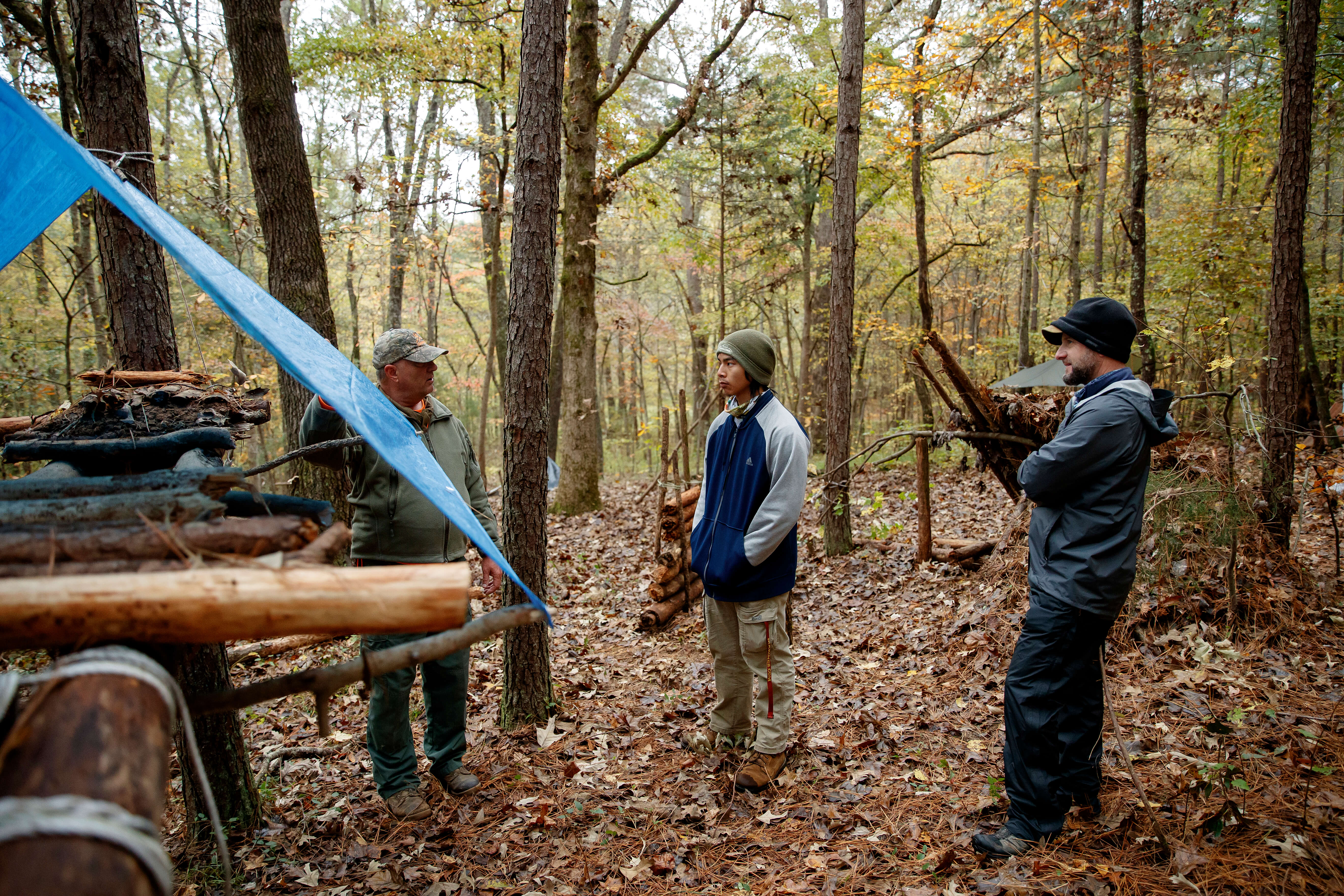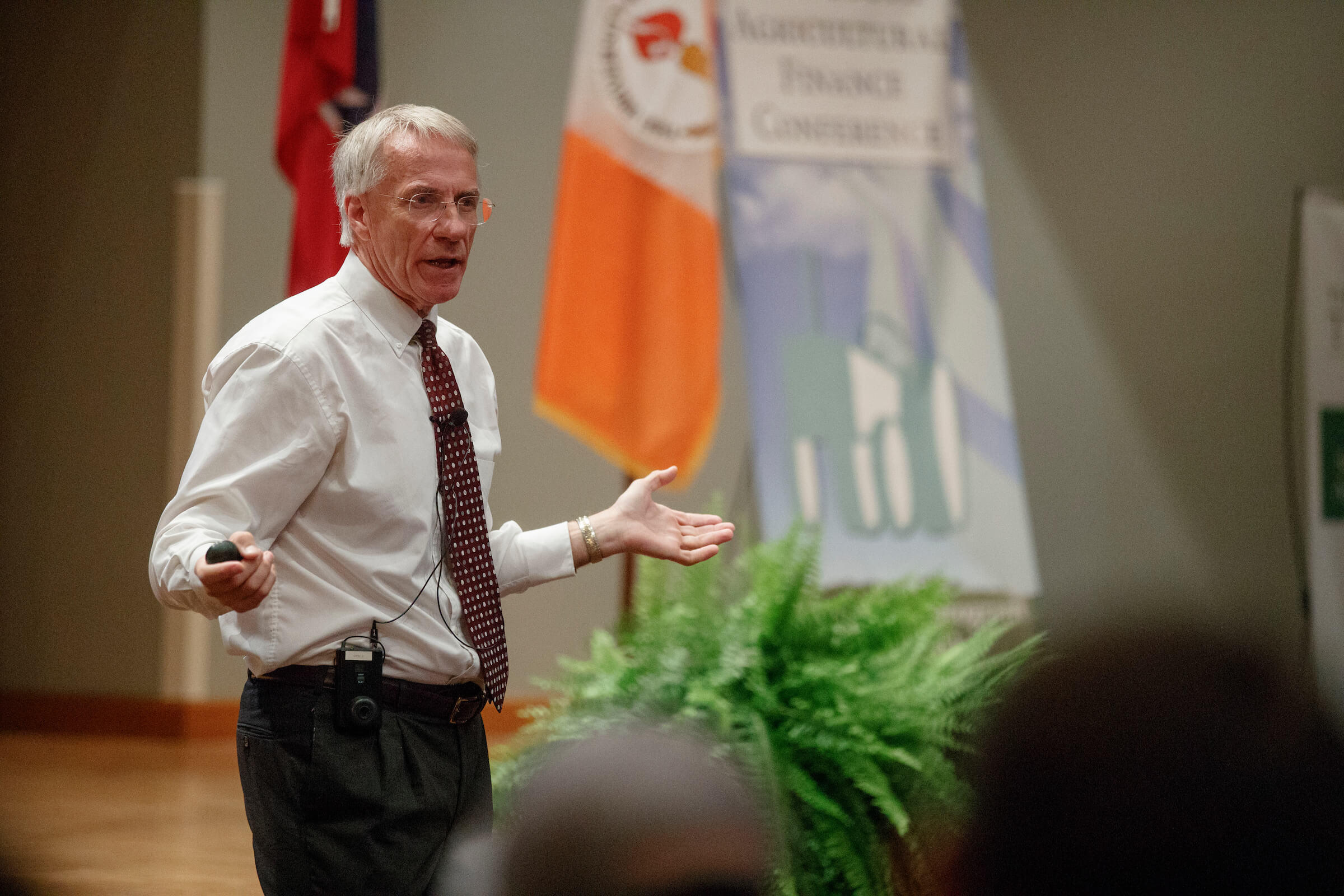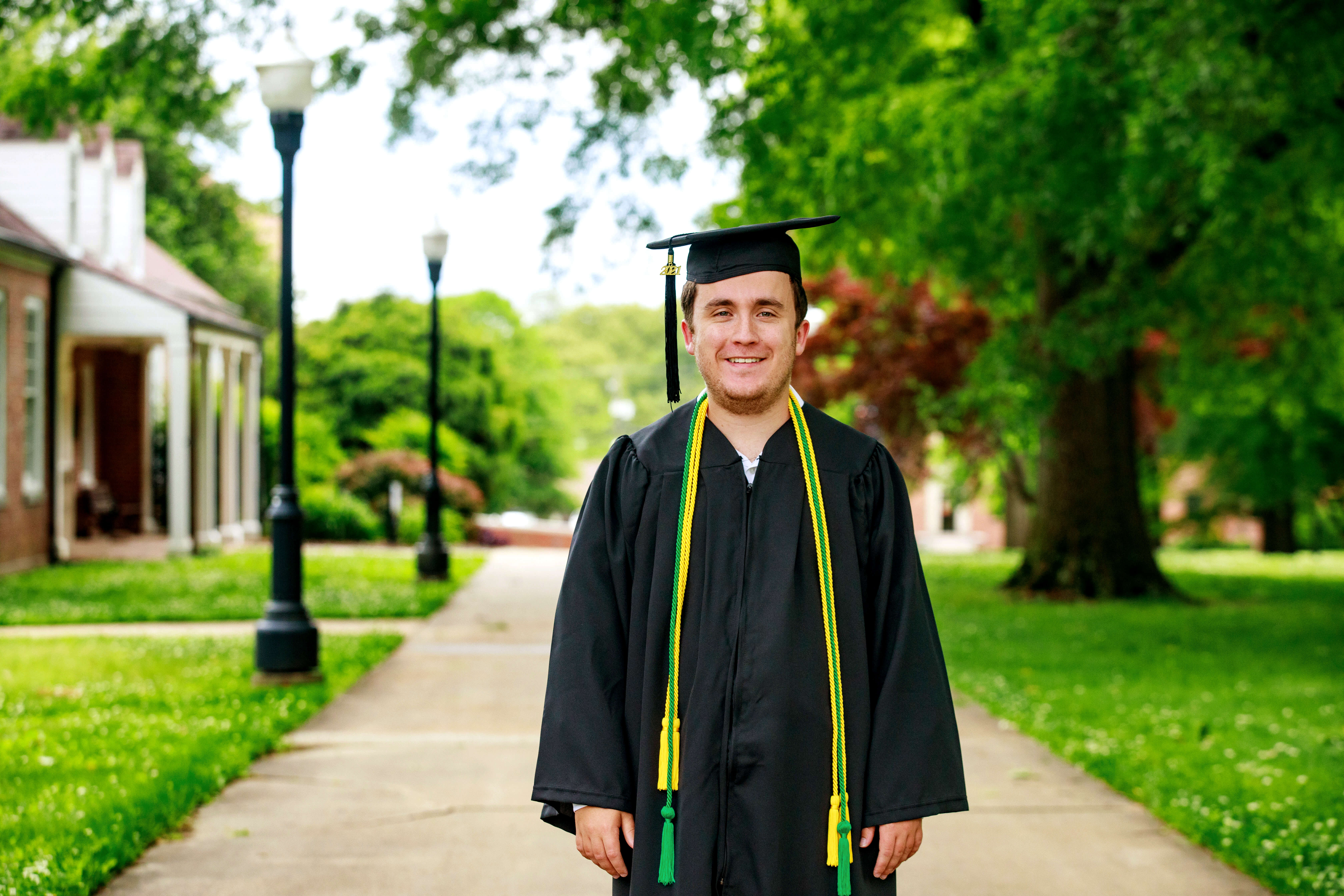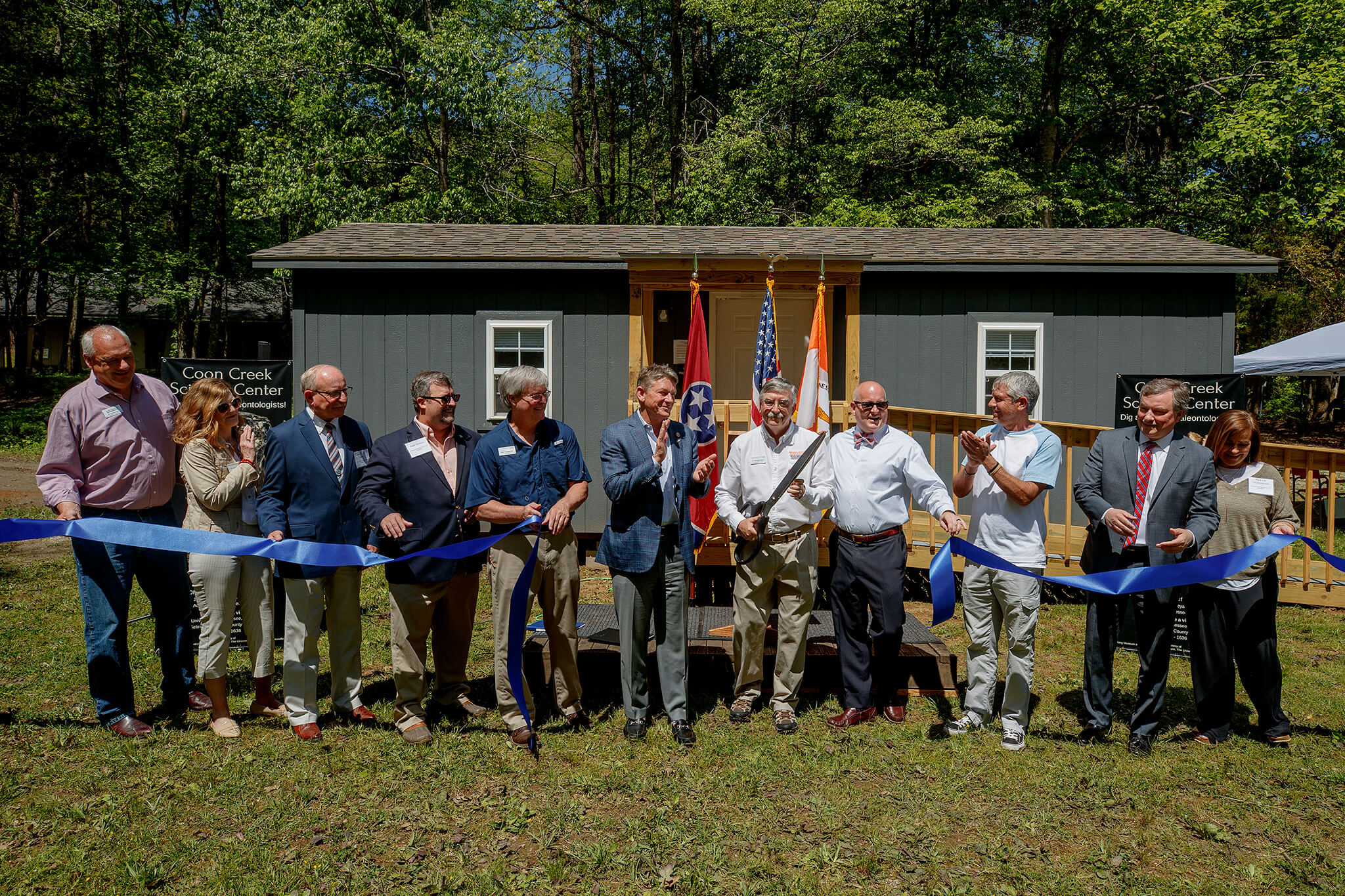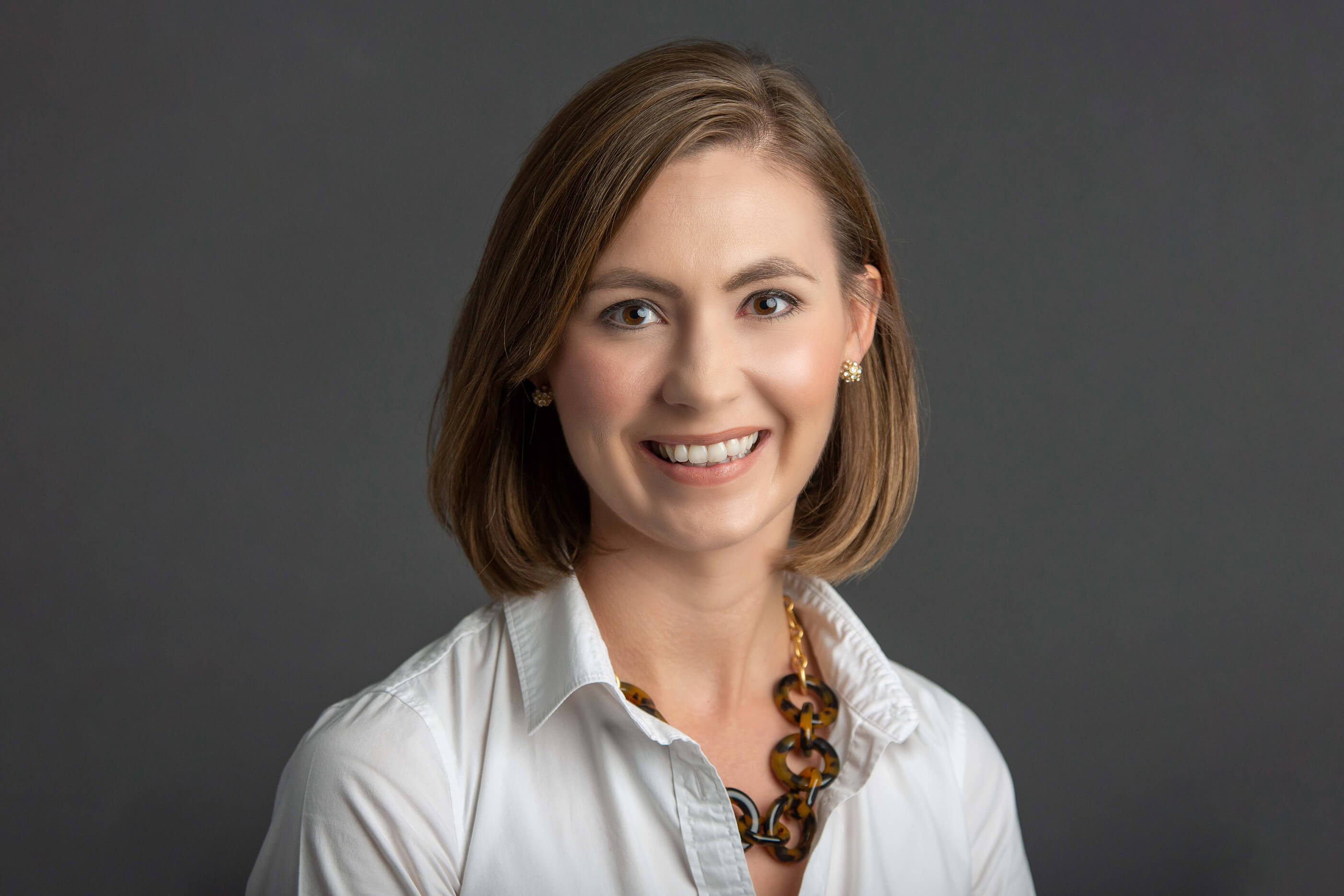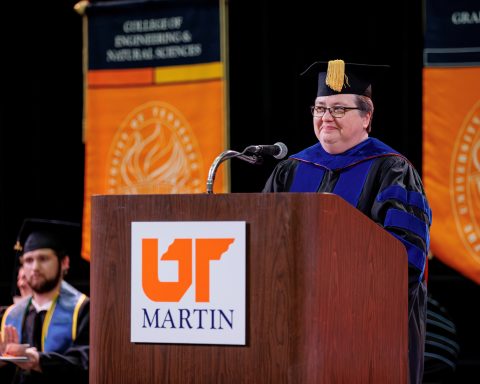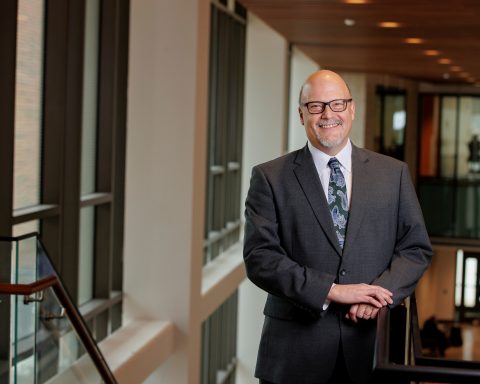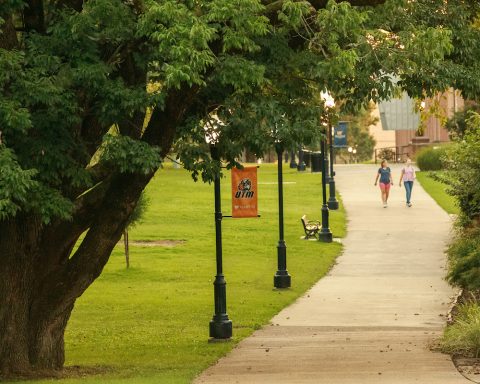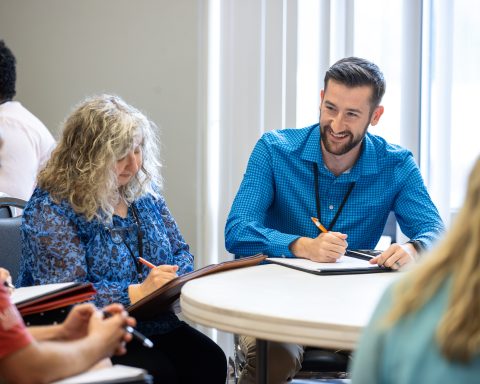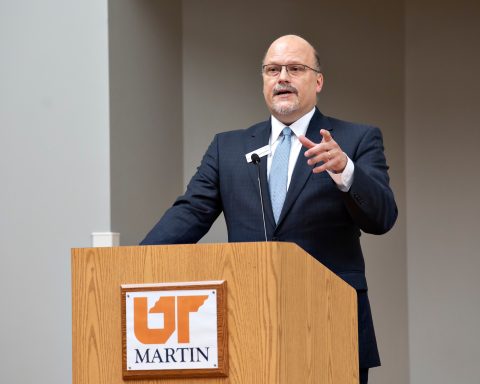To protect his family and their wellbeing, Dr. Stan Dunagan, professor of geology, prepares for the worst. Now, through the University of Tennessee Martin’s new disaster preparation course, Dunagan can use the knowledge that he has gained to help prepare students to deal with natural disasters and other calamities.
The idea for the course stems from Dunagan’s understanding of Northwest Tennessee’s geography, particularly its susceptibility to earthquakes.
“Earthquakes are a real hazard to anyone living in West Tennessee. It seems logical to me to make a few preparations for an earthquake – especially if the state and federal (government) expects citizens to be ‘two weeks ready.’ The nice thing about ‘prepping’ for an earthquake is that many of those preps are also invaluable to winter storms, tornadoes and other hazardous events,” Dunagan said.
Although the main focus of the class is influenced by Dunagan’s understanding of earthquakes, students also learn about other natural disasters such as volcanic eruptions, wildfires, coronal mass ejections, or “super solar flares,” as well as other threats such as active-shooter situations and cyber-attacks. The course aims to equip students with not only the knowledge of how to prepare for natural disasters and other unexpected events, but also with the mindset to effectively do so.
“We’ve talked about the tools, the stuff, knowing how to use them, but really you’ve got to get it in your head that there could be a situation that could be bad that could happen. I think most people are not situationally aware of the dangers that they face day in and day out,” Dunagan said.
Dunagan promotes self-reliance in his course by teaching students the skills necessary to survive on their own and to be aware of the dangers around them.
“Don’t expect that the state or the federal government will come help you because literally I have been to multiple states where they have said, ‘Our priority is the top two metro areas and everybody else will take 10-14 days,’” Dunagan said. “It’s not that hard to get two weeks ready, but it does take some time, so I’ve just been trying to talk to the students to … increase personal responsibility, have that mindset that they are responsible for their own personal safety, and increase their situational awareness.”
In order to put the lessons he has taught into practice, Dunagan and a student took a basic survival course Oct. 23-25 with Master Sgt. Tim Hardy of Survive72, a veteran-owned and operated survival school in Paris. During the class, Hardy taught the pair the psychology of survival as well as tactics like shelter and fire construction, smoke signaling, first aid, and water location and purification.
“The whole premise of Mr. Hardy’s Survive72 course is that 62% of people who get lost are injured or ill, and after 72 hours, the vast majority are found. The key thing is making it through the 72 hours,” Dunagan said.
One thing that stood out to Dunagan on the trip was the effects of weather, as the weekend was cold and raining, presenting an extra layer of challenge.
“… We did many activities out by Mr. Hardy’s fire pit,” Dunagan said. “It made me appreciate the comfort of the fire. It also made me realize how little cold it takes to zap your strength and stamina.”
By teaching students how to prepare themselves mentally and physically, Dunagan provides information that any student could carry with them throughout their life.
This year is the first that the course has been offered, and Dunagan hopes to offer it as a recurring course in the fall.
For more information about the disaster preparation course, contact Dunagan at 731-881-7437.
###

